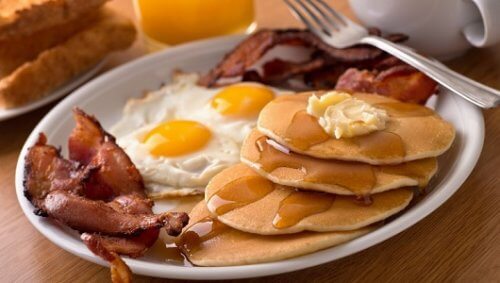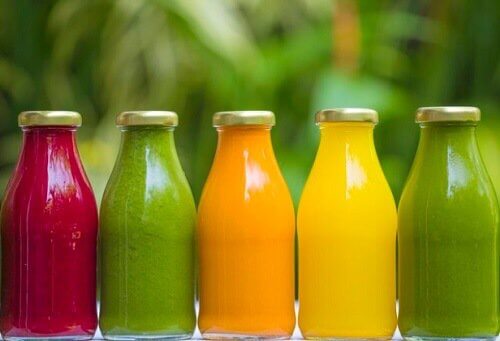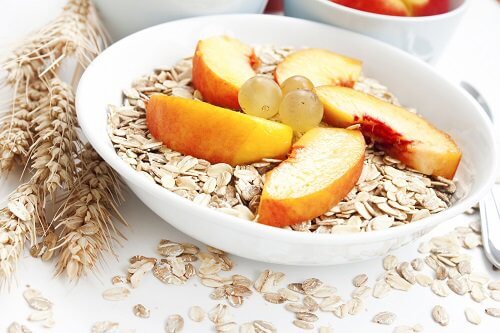5 Unhealthy Foods to Avoid for Breakfast


Reviewed and approved by Doctor Carlos Fabián Avila
Unfortunately, some of these typical breakfast foods aren’t good for your health, especially if you’re trying to lose weight. Remember, though: even though these particular choices aren’t good for us, breakfast is still the most important meal of the day. Here are 5 foods to avoid for breakfast.

Since breakfast is the first food to enter your body and its purpose is to provide vitamins, minerals, and phytonutrients, you should be careful what you include in your breakfast.
If you aren’t, you could be consuming products that cause the opposite of what you want: obesity, malnutrition, and even more hunger.
It’s not uncommon for people to fill themselves with nutrient-poor or heavy, hard-to-digest foods. These foods make us feel tired and put us in a bad mood.
When we sleep, our body is technically fasting, healing, and detoxing, but this stops the moment we take that first bite.
Check out the following foods that need to be completely removed from your breakfast lineup.
Read also: 5 Natural Foods for Controlling Hypertension
1. Artificial or highly-processed fruit juice

Let’s start with one of the most common foods to avoid for breakfast. Most consider it a normal part of breakfast because that’s how it’s been since we were kids.
The trust we have in these drinks comes from the label we read that says “fortified with vitamins.”
What we don’t realize is that they are also “fortified” with sugar, artificial flavors, and artificial colors. We now know that this combination is not good for your body at all.
Pasteurized juices aren’t well-received by the body, either, as they can raise blood sugar levels.
If you really do want a fruit drink, it’s best to make your own fresh juice with just one serving of fruit.
However, don’t forget that fresh-squeezed juices contain a lot of sugar in the form of fructose.
For something more substantial, opt for a smoothie.
2. Commercial flavored yogurt
Yogurt is another food found in many people’s breakfast. After all, it is a milk product, so we think it’s healthy and nutritious, but that’s not the reality.
Commercial flavored yogurt is another food best to avoid eating for breakfast because:
- It triggers the release of mucus, causing phlegm to appear.
- Flavored yogurt tends to be full of sugar and artificial ingredients.
Instead, opt for natural yogurt. You can make it at home or buy it at the store, but be sure to always read the label. You shouldn’t see any added sugars or chemicals on the ingredient list.
If you want something with more flavor, mix a serving of fruit into your yogurt.
3. Processed Meats
Types of meat like bacon, ham, and sausages are harmful to your health, regardless of whether they’re a diet food or not.
The majority of these meats are high in sodium and saturated fat.
In addition, they’re hard for your digestive system to process, thus leaving you feeling tired and heavy. That’s not a pleasant feeling when you have a busy day ahead of you.
Instead of processed meat, we suggest chicken, eggs, or any lean meat along with a good serving of vegetables.
Read also: Four Foods That You Should Avoid in Any Diet to Lose Weight
4. Boxed cereals

This is a classic, just like juice. After all, commercials have taught us that eating these cereals for breakfast will fill us with energy all day, right?
The problem is that they make you feel heavy and sleepy, which is why you would do well to avoid having them for breakfast.
These products are high in sugar, artificial colors, and artificial flavors. As we’ve already seen with the juices, this mix is not good for your morning at all.
When we combine these cereals with animal milk, we get a terrible start to the day.
A better option for breakfast is natural or organic cereals. You can even make oatmeal, homemade cereal bars, or whole wheat bread.
If you want to add milk, do your best to make it a vegetable milk like soy milk, oat milk, almond milk, or coconut milk.
5. Pancakes with maple syrup
Delicious pancakes are a favorite for many, especially with maple syrup or a bit of butter.
However, despite tasting good and filling you up, they don’t make a very good meal, so pancakes are one of the foods to avoid for breakfast.
Pancake batter is high in refined flour and has a lot of sugar, which makes you feel lethargic a few hours after eating it.
- If you don’t like the idea of eliminating it completely from your life, substitute the white flour for oat flour.
- As for the sweetener, try sweetening it by adding fruit to the batter.
Remember: we’re not saying you should never again eat these foods, just that you try to maintain a balanced diet. You can have these products up to once a week without any problems.
The rest of the days, try to keep a healthy diet free of these foods.
We know a healthy lifestyle can be hard, but it’s also more rewarding if you choose to eat the right foods and know which foods to avoid for breakfast.
All cited sources were thoroughly reviewed by our team to ensure their quality, reliability, currency, and validity. The bibliography of this article was considered reliable and of academic or scientific accuracy.
- Bray GA, Nielsen SJ, Popkin BM. Consumption of high-fructose corn syrup in beverages may play a role in the epidemic of obesity [published correction appears in Am J Clin Nutr. 2004 Oct;80(4):1090]. Am J Clin Nutr. 2004;79(4):537-543. doi:10.1093/ajcn/79.4.537
- Stanhope, K. L., & Havel, P. J. (2009). Fructose consumption: considerations for future research on its effects on adipose distribution, lipid metabolism, and insulin sensitivity in humans. The Journal of nutrition, 139(6), 1236S–1241S. https://doi.org/10.3945/jn.109.106641
- Paik, D. C., Wendel, T. D., & Freeman, H. P. (2005). Cured meat consumption and hypertension: An analysis from NHANES III (1988-94). Nutrition Research. https://doi.org/10.1016/j.nutres.2005.10.002
- Environmental Working Group. Sugar in children’s cereals: Popular brands pack more sugar than snack cakes and cookies. (2011). recuperado el 28 de agosto de 2020. http://static.ewg.org/reports/2011/cereals/pdf/2011-EWG-Cereals-Report.pdf
This text is provided for informational purposes only and does not replace consultation with a professional. If in doubt, consult your specialist.








